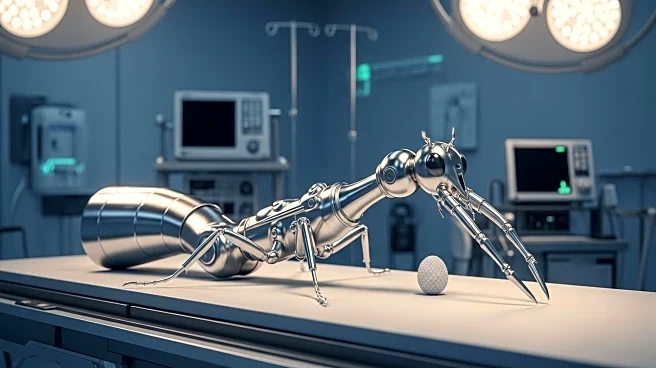What's Happening?
Researchers at Heriot-Watt University have discovered that the sawfly's ovipositor, a biological reciprocating saw, could inspire advancements in surgical tools. The ovipositor allows sawflies to make precise incisions in plant tissue without damaging vital structures, a mechanism that could be adapted for human surgery. The study, published in Bioinspiration and Biomimetics, highlights the potential for this natural mechanism to improve surgical precision, especially in complex operations where visibility is poor and the risk of cutting vital structures is high.
Why It's Important?
This discovery could significantly enhance surgical practices by providing tools that instinctively avoid critical tissues, reducing the risk of surgical errors. The passive nature of the sawfly's cutting mechanism offers a model for developing instruments that operate effectively in challenging environments, such as blood-flooded surgical fields. If successfully adapted, this technology could lead to safer surgeries, improved patient outcomes, and reduced recovery times, benefiting both patients and healthcare systems.
What's Next?
Further research and collaboration with surgeons are necessary to explore the practical applications of this mechanism in human surgery. The development of prototypes and testing in clinical settings will be crucial steps in determining the feasibility and effectiveness of sawfly-inspired surgical tools. This innovation could pave the way for new surgical techniques and instruments, potentially transforming the field of surgery.
Beyond the Headlines
The study exemplifies the potential of biomimicry in advancing medical technology, encouraging scientists to look to nature for solutions to complex human challenges. It also raises ethical considerations regarding the integration of biological mechanisms into medical devices, prompting discussions on the balance between innovation and safety in healthcare.










